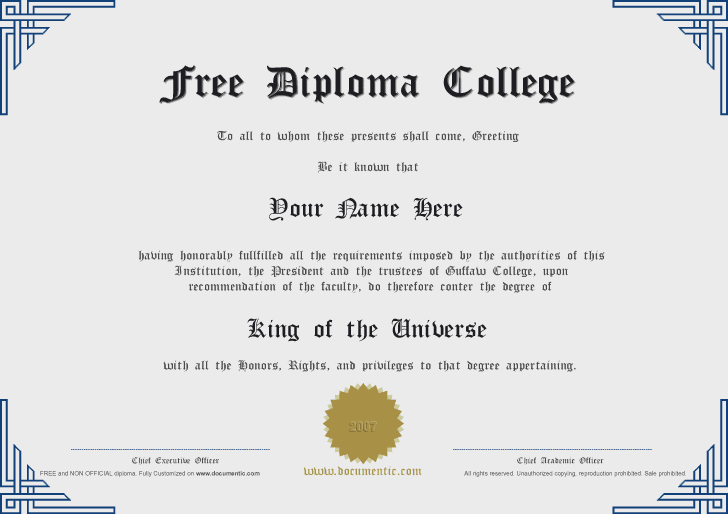Update: The Outstanding Award process closed after the 2020/21 academic year. Current students who have made an outstanding contribution to their PLUS Award activity may consider engaging with the Outstanding PLUS Award, which launched in the 2021/22 academic year.
Tag: Postgraduate research
Postgraduate Researchers: stand out with the Bristol PLUS Award
Postgraduate Research students; why not challenge yourself this year and develop a range of skills and experiences to enhance your career prospects and opportunities after your research? Last year PGRs from all faculties took part in the Bristol PLUS Award. The feedback was fantastic, as these case studies show:
Hannah Barber: Part-time Medicine PhD

As a part-time PhD student, my schedule can be very busy. The PLUS Award provided me with a great opportunity to enhance my employability skills and CV without consuming too much time. The award encourages you to take part in extra-curricular activities which will help you seek out a career. The experience enhances your reflective skills which I found could also be transferred to my daily research.
Through the PLUS Award I learnt about career opportunities beyond research. It taught me how to lay out my CV in a clear and concise manner which will attract a future employer’s attention. I found the whole experience very useful and would recommend it to anyone who is keen to make their CV stand out from the crowd.
Ji Youg Li: PhD: Philosophy
Doing well in postgraduate research is not only about academic success, it is also important to develop transferable skills. In signing up for the Bristol PLUS Award I wanted to engage in activities that would be beneficial for my career. I branched out in the variety of activities for my work experience and had fun as well! I also became more productive in my academic work, as I learnt skills in maximising my time and effort.
Through PLUS I gained insight into how to articulate my skills to others, how to reflect on my experiences and how I can apply transferable skills to career-related opportunities as a PGR student. The employability workshops were especially helpful, breaking down the key points needed to enhance my CV and prepare for interviews. The great thing about the PLUS award is that it encourages you to try new things and go outside of your comfort zone. Bristol PLUS was not simply an ‘award’ but a source of inspiration for me to keep being proactive, and to continue to practice and apply my skills. I really enjoyed my experience; the award offers an invaluable experience for PGRs so I would definitely recommend it.
David Dewar: MPhil: Music
Though a somewhat mature PGR, the Plus Award seemed a useful and potentially helpful achievement. I started thinking about how I could use the award in my own situation.
The workshops were relevant to my future aims, and were also interesting and not too time consuming. Reflection on what one has achieved was a further rewarding feature. More recently I have learnt from interviewers in academia, industry and music that the record of such an achievement on a CV stands out and demonstrates your abilities, achievements, and self-endeavours; very valuable skills to advertise when backed up by formal recognition from the University of Bristol. I would recommend it to everyone, particularly PGRs; it’s enjoyable and meaningful.

Visit the Careers Service website to find out more about the Bristol PLUS Award and book on to an Introductory talk before 9 February 2018. Intro talks are open to all students and PGR tailored Intro talks are offered on 19 October and 19 January.
Why PGRs should do the Bristol PLUS Award
This year we’ve been running new tailored PGR Introductory talks for the Bristol PLUS Award and suggested work experience and intensive skills activities that are relevant to PGRs thinking about academic and non-academic careers. This has seen up-take of the Award amongst PGRs increase by 667%! Below Miquel and Oli talk about what benefits they got from doing Bristol PLUS.
Miquel Perello-Nieto: Computer Science PhD
 The Bristol PLUS Award encourages you to be more proactive during postgraduate study. To complete it you must accomplish a set of requirements, involving different skillsets. By participating in the PLUS Award you increase your chances of getting a job by attending workshops on, for example, job hunting, networking, or interview skills.
The Bristol PLUS Award encourages you to be more proactive during postgraduate study. To complete it you must accomplish a set of requirements, involving different skillsets. By participating in the PLUS Award you increase your chances of getting a job by attending workshops on, for example, job hunting, networking, or interview skills.
The workshops
I attended a workshop about creative job searching that offered a set of useful tools to find jobs, and emphasised the importance of networking in this process. I also learnt about assessment centres and what to expect in the selection process, and attended a very useful workshop about enterprise, innovation, and communication for researchers. These helped develop my skills in giving effective presentations of my research, and a clearer mindset for tackling common problems faced by researchers. I am now more confident when presenting my research, and am also more organised when preparing for meetings, taking notes, and summarising afterwards.
The benefits
The Bristol PLUS Award has improved my skills, and is really useful in encouraging a proactive habit for learning and appreciating a set of skills not acquired during a postgraduate degree. I am now more prepared to find a job and make a good impression – the next step is to find a job!
Oli Bell: Medicine PhD
The Bristol PLUS Award allowed me to gain accreditation for work I was already performing, and helped strengthen my applications. It will demonstrate to potential employers that I take career development seriously, and that I am taking strides towards enhancing my employability skills.
I first read about the Bristol PLUS Award whilst browsing the Bristol Doctoral College’s course system. When I attended the introductory talk I had already completed the vast majority of tasks required to complete the award. The mainstay of tasks I completed were in relation to my intended future career path in teaching and research, so it was easy to fit in around my study.
Work experience and workshops
Throughout the Bristol PLUS award there were several workshops and opportunities available through the Careers Service, as well as the possibility to use external workshops. To develop my teaching skills, I worked as a tutor with the company MyTutor, who offer online tuition for GCSE and A-level pupils in an interactive online classroom. I attended education workshops and undertook the ‘starting to teach’ course offered by the Bristol Doctoral College, which constituted my intensive skills activity. During this time, I gained insight into the challenges of teaching in university, and began to work on techniques in teaching. I also gained skills in lab demonstration, and this will undoubtedly strengthen any future applications I make in this area.
The benefits
The booking and submission process were easy, and fully-integrated online, allowing you to submit from anywhere, and to complete the Award at your own pace. This was very convenient for me as I needed to fit work toward it around my busy schedule.
In summary, I feel the Bristol PLUS award can only strengthen a CV, as it helps you develop core skills that serve to enhance future job applications.
Further information:
For more information and to find out how to sign-up for Bristol PLUS next year, read our Bristol PLUS Award webpages.
The Seven Secrets of Highly Successful Researchers
Being a productive and successful PhD student is not easy. There are a multitude of distractions and procrastination activities to fill up any long day in the office. As I am now in the final 12 months of my PhD, attending a seminar that promised to provide practical tips on how to finish my PhD on time and still enjoy the process sounded highly appealing.
The event, organised by the Bristol Doctoral College and the University of Bristol Careers Service, was run by Hugh Kearns and focused on being a successful research student. He presented hints and tips to help PhD students work more effectively and gave a lot of practical advice on how to get through the PhD process. Overall, I found the event really useful and I would highly recommend the event to other PhD students. Since the event, I have been putting some of Hugh’s tips into practice and found myself to be more productive in the office.
For students that were unable to attend the event, here is my overview of Hugh’s seven secrets:
- Meet regularly with your supervisor.
- Write and show as you go.
- Have realistic research goals – try not to be a perfectionist.
- Say no to distractions – checking your email first thing in the morning decreases daily productivity.
- Set regular hours and take holidays – reward yourself with a break.
- Make full use of the available help – you’re not on your own!
- Persevere – you can do it!!
For more information, take a look at the informative careers columns from Hugh Kearns in the journal Nature, with topics on ‘The Motivation Fairy’, ‘The Care and Maintenance of your supervisor’ and ‘Turbocharge your writing’.
Gemma Coxon, PhD student
Further information and support of how to manage the PhD process can be found on the Vitae website. The Balanced Researcher offers some useful strategies and techniques to keep your work and the rest of your life in balance.
The University of Bristol Careers Service offers specific events, workshops and careers adviser support for PhD students.
PGCE or PGDip? A quick guide to postgraduate qualifications
If you’re thinking about postgraduate study, then you won’t be the only person having trouble distinguishing your MPhil from your DPhil, or a PGCE from a PGCert. Here are a few of the main postgraduate qualifications explained, as well as some tips for choosing which one is right for you.
Masters degrees
Master of Arts (MA), Master of Science (MSc), Master of Education (MEd), to name just a few!
Often referred to as a taught masters, these degrees usually take one year full-time (or two years part-time) after the completion of an undergraduate programme. You will attend lectures and seminars for about nine months, leaving another three to research and write up your thesis. You may need one in a specialist area to advance careers in sectors such an international development or in actuarial work, but many people also choose to complete one to enhance their knowledge of their undergraduate subject.
(Master of Research) MRes
If you are considering a career in research, either in industry or academia, then a research-led masters may be a more relevant route for you than a taught one. There is a greater emphasis on the thesis, which can be up to 40,000 words in length, compared to around 20,000 for a taught masters. An MRes can also be awarded to students who have worked towards a doctorate but have not achieved the required standard.
Master of Philosophy (MPhil)
This is a more advanced, research-based masters degree, and can sometimes be completed as preparation for a doctorate.
Doctorates
A doctorate demonstrates that you have made an original contribution to your academic discipline, engaging in three to four years of committed research and producing a thesis. The traditional model of a doctorate that people have in mind is usually that of the lone student working closely with their supervisor. However, there are now many different kinds of doctorates available and which are delivered in a variety of ways.
A Doctor of Philosophy (PhD) can still be undertaken alone but you could also be part of a research team and may be supervised by several academics or even industry professionals to address different aspects of your project. A DPhil is simply what Oxford University calls a PhD. A DEng is a doctorate in engineering, and this can involve considerable time spent in industry on placements, as is also now the case with some science doctorates.
Other options include practice-led doctorates, which require something like an exhibition alongside a thesis in art and design or performance-based areas, or a doctorates by publication, where publishing a certain number of articles or a book can be taken as evidence of your expertise. The latter is more common when you have already been working in an area for some years. This is also the case for professional doctorates, such as the Doctor of Education or EdD, where experienced practitioners will present a portfolio of evidence as well as a thesis to achieve this qualification.
Postgraduate Certificates & Diplomas
Postgraduate certificates and diplomas fall between undergraduate and masters degrees, offering training in both vocational and academic areas, with qualifications taking months rather than years to complete. For example, careers advisers can complete a postgraduate certificate in careers guidance (PGCert), followed by a postgraduate diploma (PGDip) and, if they are really keen, go on to an MA in Careers Guidance, where they would take on a research element in an area that interests them.
Entry into areas such as law and teaching also require study at this level, with aspiring solicitor and barristers completing the Graduate Diploma in Law (GDL), if they do not already have a law degree, and would-be teachers studying for the Postgraduate Certificate in Education (PGCE).
Key points to consider
If you are currently thinking about whether or not further study is right for you, and what kind of qualification to take, then do come in and talk to us at the Careers Service. Many students think about taking a masters degree because they can’t think of what else to do after graduation, and this could be a very expensive year out of the labour market without enhancing your prospects if you don’t choose wisely.
We always recommend speaking to potential employers or contacts in the areas of work that interest you to find out if you need to take a postgraduate qualification and, if you do, which ones would be most relevant. Our web site contains more information about postgraduate study, as well as information about how to fund it.
Finally, watch out for workshops at the Careers Service this autumn on choosing postgraduate study as well as on specific options such as the Graduate Diploma in Law (GDL) and teacher training via the PGCE.
Dr Tracy Johnson, Careers Adviser
(Image: http://ipdraughts.wordpress.com/2011/08/20/postgraduate-diploma-in-ip-transactions-an-update/)
Career profile: Educational Psychologist
A 2010 DEdPsy graduate Cardiff University, currently working as an Educational Psychologist for a local authority provided the case study below about her current role and how she got there.
How did you get your job?
The initial step was to get my first degree in Psychology- I graduated from Aston University in 2001. During that degree I worked as a clinical psychology assistant for the NHS for 12 months. After graduation I worked as a mental health support worker for a year, and decided that I wanted to pursue the Educational Psychology route and taught in a primary school for 2 years following a PGCE.
At the time, 2 years of teaching was a prerequisite to be accepted onto the DEdPsy course, and whilst it no longer is, the classroom experience gave me a firm foundation to then apply for an Assistant Educational Psychology post which then led to successful acceptance onto the Doctorate course.
The course consisted of placements working as a Trainee Educational Psychologist in three different local authorities, a number of research projects and a thesis. I graduated and have been working ever since for a local authority.
What does your role involve?
I work with children and young people between the ages of 0-19 and the systems around them (school, family, community) using a consultation approach in order to facilitate change. There is a lot of multi-agency and liaison work, which involves working collaboratively with school staff, parents, and a range of other professionals (e.g. Social Services, Speech and Language Therapists, Youth Offending Service, Child and Adolescent Mental Health Services) to identify and support any wellbeing or additional learning needs.
Adaptability and the ability to communicate with others is key. I work with 15 schools including primary, secondary and pupil referral units and work one-to-one with a child using psychological assessments, individual therapeutic work and observations. I also undertake more proactive group interventions to help the children and young people develop social skills, self-esteem and self-regulation. I also work at a systemic level, supporting schools to develop policies and interventions, and provide training to teachers, LSAs and ALNCOs on topics such as self-regulation, anxiety management, psychological approaches and attachment. There is a lot of administration too- I have to research and analyse the effectiveness of interventions, write reports and ensure that I keep up to date with the latest research in order to provide evidenced based practice.
How did your degree help?
If you want to become an Educational Psychologist having the Doctorate in Educational Psychology is an essential requirement by the British Psychological Society (BPS). My DEdPsy involved 3 placements which were invaluable in finding out the variety of approaches which are used in different local authorities. My 50,000 word thesis explored the impact of teachers using Solution Focused approaches in schools.
What advice would you give anyone else wanting to get into educational psychology?
With fewer assistant educational psychology posts available due to funding cuts, you will have to work harder to evidence your motivation for the DEdPsy course.
Tips:
- Experience of working with young people and children is essential. Get into a school and classroom setting to get a better understanding of the educational and school systems. Experience beyond the classroom is also invaluable e.g. in youth clubs, sports clubs, playgroups, voluntary agencies. This will give you a holistic insight into what children deal with on a daily basis and some of the challenges they face. It is vital that you gain experience of working with children from all backgrounds with a variety of needs and will be key in being able to demonstrate your communication skills and your empathetic nature.
- Always consider the link to psychology in what you have done e.g. if you work as a learning support assistant or volunteer with a play scheme, think how you have used psychological principles to deal with challenges successfully.
- Demonstrate your enthusiasm and initiative by asking to shadow professionals that work with children and young people- social workers, clinical psychologists, therapeutic workers. If they can’t spare the time for you to come out for the day, ask if you can at least speak to them – try to gain insights wherever and whenever you can. Ask questions and demonstrate that you’ve gone the extra mile with additional research- contacts can be key to professional development in this field.
- Get research experience during the summer- seek out psychology research projects and get involved.
- Consider choosing a dissertation topic related to children or young people. This will not only help demonstrate your interest and increase your knowledge but could also bring you into contact with a range of other professionals who also work with children.
- Keep up to date with the latest research- journals such as Educational Psychology in Practice, Educational & Child Psychology, developments in the profession through the BPS and if possible attend any appropriate training courses.
Final note from the Careers Service:
For further advice and information about psychology careers see our ‘I want to work in healthcare’ pages. If you miss our ‘Careers in Psychology’ event, don’t forget you can find content on our Careers Downloads page.
Image from: http://www.morguefile.com



